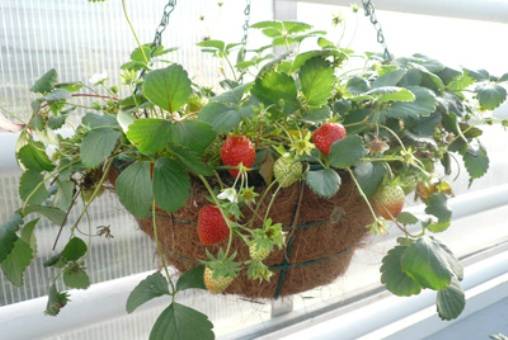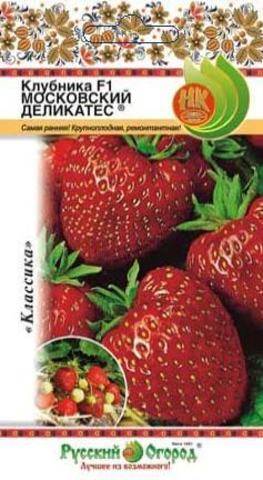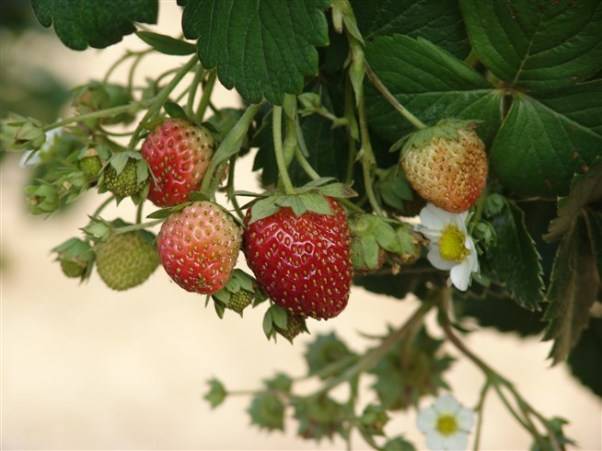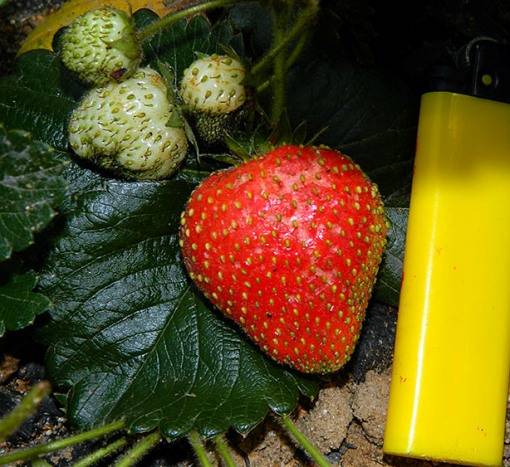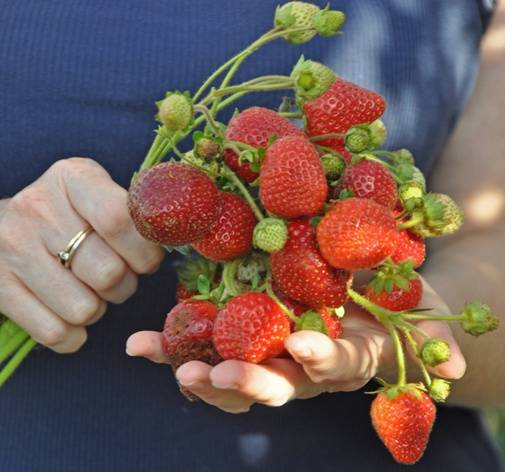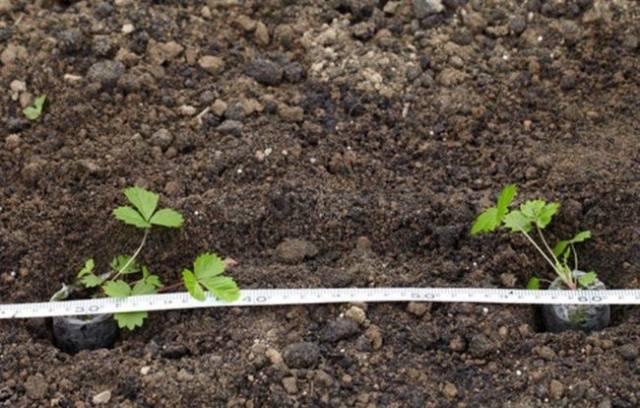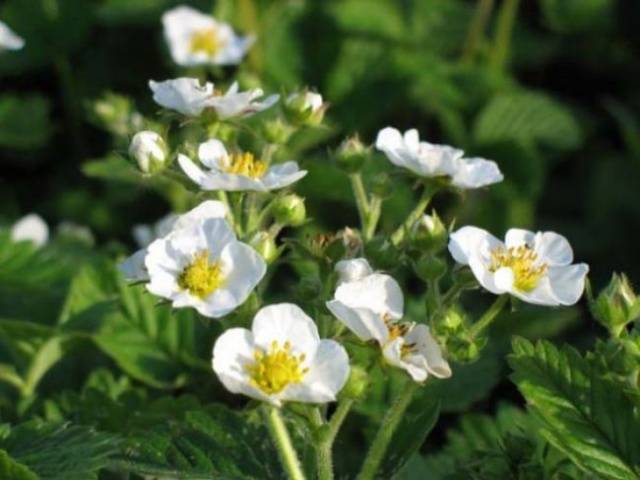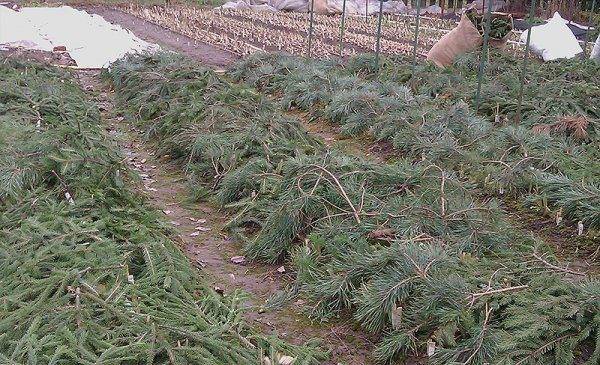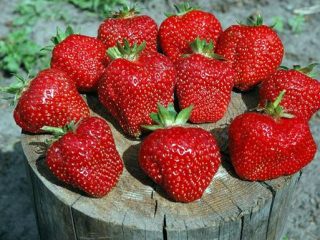Content
Strawberry Moscow delicacy belongs to remontant hybrids of neutral daylight hours. She is able to grow and bear fruit at any length of daylight hours.
How to grow a variety, about the features of reproduction and planting care will be discussed in the article. And thanks to reviews and photos of strawberries Moscow delicacy sent by gardeners, there is an opportunity to learn more about the plant.
Features of the variety
Strawberries Moscow F1 delicacy is a product of Dutch selection. Repaired varieties, according to the description and reviews, bear fruit for a long time, give several harvests per vegetation period. The first fruits are harvested in the last decade of June, and the harvest season ends in September.
Most often strawberries of this variety are grown by seeds. Seed material of excellent quality, according to gardeners' reviews, is produced by the firms Russian vegetable garden, Gardens of Siberia.
Description of bushes
Strawberry variety Moscow delicacy is represented by compact medium-sized bushes with a large number of leaves of a rich green color with clearly visible teeth.
The forming stalks are strong, long. Semi-spreading inflorescences rise above the foliage. Gardeners use this feature of the variety to decorate the site, growing strawberries in pots or containers. Each inflorescence has a large number of snow-white flowers with bright yellow hearts. In their place, ovaries are formed. There are practically no barren flowers.
Very little mustache is formed. But what is interesting, the rosettes, having not yet formed a root system, are already throwing out peduncles. Looking at the photo below, you can see all the features of the description of the strawberry bush of this variety.
Description of berries
The fruits of the Dutch strawberry variety are distinguished by large fruits, the weight of which reaches 60 grams. Interestingly, the first and last berries are almost the same size. The largest harvest falls on the second wave of fruiting.
Some gardeners in their reviews note that the size of the berries does not match the description. This is most likely due to improper watering.
Conical strawberries with a blunt tip. The surface of ripe fruits is shiny, bright red with well-visible seeds. Therefore, it seems that a large number of yellow lights "light up" on the strawberries. The pulp is juicy, elastic. On the cut, the berry is light red or pink. No voids or white blotches are observed.
Delicacy berries are sweet and sour. Sugar and acid combine well in them. But improper watering during ripening can cause bitterness. The fruits are fragrant, with hints of wild strawberries.
Characteristic
Only descriptions of strawberries Moscow delicacy, photos and reviews of gardeners are not enough to get an idea of the variety of Dutch selection. You need to know the characteristic features of the plant with its advantages and disadvantages.
Benefits
Strawberries have been cultivated for a long time; gardeners have already appreciated the high quality of the variety. Let's consider the positive properties of the variety in more detail:
- Ripening terms. The MD hybrid ripens early, the first ripe berries begin to pick two weeks earlier than other varieties from the second decade of June.
- Productivity. High-yielding strawberries, on average 800-1200 grams of delicious juicy berries are harvested from a bush during the fruiting period.
- Transportability. The dense fruits of the Moscow Delicacy variety are grown not only on private plots, but also on large plantations. The point is the high keeping quality of fruits and the ability to transfer over long distances without losing the presentation and useful properties.
- Growing all year round. The strawberry variety bears excellent fruit not only in the open field. In a greenhouse, a rich harvest of tasty and healthy berries can be obtained 12 months a year.
- Diseases and pests. Strawberries of the Moscow Delicacy variety have good immunity and are resistant to major strawberry diseases.
disadvantages
Dutch-bred strawberries have long enjoyed well-deserved popularity due to their merits. Although the hybrid still has disadvantages:
- Due to the low frost resistance, it is necessary to cover the plants for the winter.
- The formation of Dutch strawberries is practically at zero: only one tendril is formed for 7-8 bushes. Therefore, the hybrid Moscow delicacy reproduces mainly by seeds.
- You can grow strawberries in one place for no more than 3-4 years, then planting requires renewal.
Reproduction
Like any strawberry, Moscow delicacy can be obtained:
- seeds;
- sockets;
- dividing the bush.
But the variety forms too few rosettes, there are two ways. The most common option is seed propagation. It will be discussed below.
Sowing dates for strawberry seeds is February, early March. First, the seeds are soaked in melt water or growth regulator.
Drainage is laid out in a container, fertile soil on top. You can use self-prepared soil or store soil. Before sowing seeds, the earth is spilled with boiling water, in which it is desirable to dissolve several crystals of potassium permanganate. You can also heat the soil in the oven.
Strawberry seeds are not buried, but laid out on the surface of moist soil. Then the container is covered with glass or foil and placed on a sunny window. Seeds sprout for a long time, at least two weeks. And even after the emergence of sprouts, the shelter is not removed, only a small hole is left for ventilation.
At the stage of appearance of 3-4 true leaves, a pick of seedlings is carried out. You need to work carefully, since the root system of strawberries is represented by thin threads.
A very good way to grow strawberries from seeds is by sowing in peat tablets. To understand the meaning of the work, watch the video:
Before transplanting the seedlings to a permanent place, the plants are hardened, accustomed to new growing conditions. By this time, each strawberry should have at least six leaves and the first flower stalks.
Landing and care
For planting strawberries of the Moscow Delicacy variety, nutritious soil is needed. In addition to humus, sand must be added. The ridges must be watered with hot water, adding a few crystals of potassium permanganate.
Seedlings are planted after the establishment of positive temperatures. But even so, it is necessary to install arcs to cover the strawberries at night. Seedlings are planted at a distance of 40-50 cm, it is better to use a two-line planting method to facilitate further care.
Mulch the soil immediately after planting. This will get rid of loosening and weeding of the strawberry variety. In addition, mulch retains moisture in the soil. Watering of the variety is carried out in moderation, but drying out of the soil is not allowed, as this negatively affects the yield.
Features of feeding
Bushes of the Moscow delicacy variety need additional nutrition:
- At the beginning of the growing season, it is advisable to spill the plants with a solution of ammonia in order to accelerate the growth of green mass.
- During flowering, potash fertilizers must be applied under the strawberries, but humus and wood ash can be used.
- To increase the formation of inflorescences, plantings need to be sprayed with boric acid (1 teaspoon per ten-liter bucket).
- The Moscow delicacy variety responds well for feeding with mullein and green grass infusion.
Watering
Now let's talk about how to properly water strawberries:
- Use only warm water.
- If it rains, then the watering is reduced, in the heat, on the contrary, it is increased. But it is impossible to overmoisten the soil in any case.
- The work is best done early in the morning before sunrise.
- Until the strawberries of the Moscow Delicacy variety have thrown away their peduncles, sprinkling is useful for it. In the future, you need to water under the bush, trying not to get on the leaves and inflorescences.
- If possible, you can arrange drip irrigation.
Preparing for winter
Before the shelter, the strawberries of the Moscow delicacy variety are cut off, the fallen leaves are removed from the ground. After that, the soil is treated with special preparations so that the plants do not get sick in the spring.
According to the description, the variety from the Dutch breeders has an average frost resistance, therefore, the plants must be covered for the winter when grown in the zone of risky farming. To do this, you can cover the planting of strawberries with spruce branches, and sprinkle with soil on top. In winter, throw snow.
